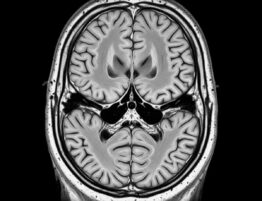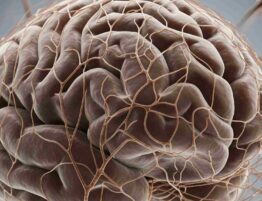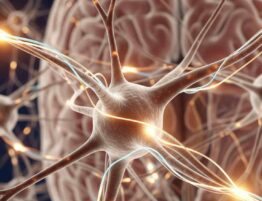Our health significantly affects our quality of life. Seasonality has a significant impact on the human condition. Seasonal changes can trigger neurological symptoms. Seasonal changes can have an impact on a person’s cognitive functions and sleep. Mood, light, and temperature fluctuations usually contribute to moodiness. These conditions affect everyone, making it important to maintain good health. Many diseases are caused by certain injuries and certain changes. High temperature has a harmful effect on a person’s fatigue and muscle weakness. This can lead to decreased motivation for physical activity.
On the contrary, cold weather has a bad effect on the muscles and causes pain. Preventive care and regular health monitoring can help manage these conditions. Neurological conditions can occur as a result of seasonality, which worsens a person’s condition. Loss of cognitive abilities can lead to depression or constant drowsiness and low mood. In the cold season, you should take care of yourself and drink enough warm fluids. In summer, it is better to avoid a lot of daylight and drink cool water. A person’s mood also plays a significant role in neurology. To avoid stress, it is essential to maintain a good lifestyle.
The Role of Temperature in Neurological Conditions
It is interesting to know that different temperatures have different effects on human health. Most people can tolerate various temperatures, though our bodies react differently to each. However, it is worth noting that cold and heat can have different effects on human neurology. Temperature affects the body in different ways. An important reason for affecting different conditions is human health. For a patient whose immunity is excellent, temperature does not have such a strong effect. However, caution and a responsible attitude to health are essential for everyone. Often, temperature affects some diseases that have a significant impact on neurology. Here’s how temperature affects certain diseases:
- Multiple sclerosis. Multiple sclerosis can affect people in their later years. Low temperatures aggravate this condition and cause most of the symptoms. A person may feel tired, fatigued, and depressed all the time. They will not be able to perform their functions typically and will have problems in everyday life.
- Migraine. For people who suffer from migraines, high temperatures cause great harm. You should be especially careful about humidity, which can be a trigger and cause headaches. During a migraine, it is essential to maintain a balance between normal temperature to avoid pain.
- Parkinson’s disease. Temperature effects have their impact on people with Parkinson’s disease. Cold weather often worsens the condition and slows down movements. The person observes muscle imbalance and difficulties with movement. It becomes impossible for a person to live normally and perform normal duties. Too low a temperature becomes a big trigger for maintaining balance and moving normally.
Light Exposure and Its Impact on Neurological Health
Light exposure plays a vital role in human health and well-being. For each person, the impact of light is individual, depending on their health and immunity. Research shows that proper lighting positively affects human health. Sunlight contains vitamin D, which is very useful for our brain and nervous system. Its deficiency can provoke and cause a variety of diseases. At first, symptoms appear to become more complicated and prohibit a person from living normally.
- A person experiences serious problems during the winter when there is too little sun. Natural light becomes the most desirable for human health and immunity. Its absence affects sleep, hormone levels, and mood. It causes certain psychological disorders that provoke further illness. Poor light exposure can cause a deterioration in energy, which leads to less activity. The symptoms are often irritability, impaired concentration, and cognitive function. The person cannot sleep properly and feels very unwell. In general, the lack of normal light causes a decrease in serotonin levels.
- A person can even experience seasonal affective disorder. The constant decline in cognitive abilities is a good reason to get the daily light intake. In Parkinson’s disease, it is often possible to observe sleep disorders and movement problems. All this is the effect of poor light that provokes further development and exacerbation of the disease. Appropriate vitamins and light therapy are essential for restoring the body’s processes. They affect functionality and improve cognitive abilities and the whole process in the body. To achieve a pleasing effect, artificial light is handy to restore health. Another good reason to think about health is to be active and eat healthy.
How Seasonal Changes Trigger Mood Fluctuations in Neurological Disorders
Seasonal changes play a huge role in people with neurological conditions. Often, individuals with neurological conditions face multiple challenges. Sunlight helps our bodies produce essential vitamins that allow you to get good immunity. Thanks to it, we feel good and have developed cognitive functions. Depending on the season, the sun changes, and so does the human body. Reduced sunlight has a significant impact on the human body. Some rhythms in the body that are responsible for sleep, mood, and hormones are disrupted. They play an essential role in the general condition of neurological conditions.
- Neurological conditions are often exacerbated during seasonality. In winter or autumn, there is very little sunlight. Its lack has a powerful effect on the production of serotonin. It is this hormone that is responsible for a person’s mood and functions. A person with neurological disorders may experience constant discomfort. It appears in the form of fatigue, constant stress, irritability, and depression.
- Neurological problems often act as a tool for disrupting a person’s health. They are especially exacerbated during the seasonal drop in light. The lack of sunlight causes various conditions that are accompanied by symptoms and subsequent exacerbations of diseases. Seasonal changes are an integral part of our lives. To solve problems, it is essential to take responsibility for your health. Unique Light therapy, increased physical activity, and proper nutrition have a positive effect on a person.
Symptom Variability: Why Neurological Symptoms Change With the Seasons
Symptom variability is often characterized by seasonality. In each of these seasons, a person may experience specific symptoms and complications of diseases. Environmental hormonal and psychological factors have a significant impact on the human body. Some diseases are aggravated during certain seasons and become more acute in symptoms. Here are their main characteristics:
- Epilepsy. Often, a person with epilepsy may feel stressed during the cold. Warm weather is the best way to improve their condition. It helps to reduce muscle strain and improve the general condition of the person. They feel relaxed and in a good mood.
- Migraine. Symptom variability is also observed during the onset of migraine. When there is a change in the weather, a person may experience an increase in symptoms and pain. Temperature fluctuations are a trigger for this inflammation. Some people feel pain in the cold, and other people think of humidity and extreme heat.
Variability can even occur during hormonal fluctuations. The person experiences constant stress, changes in the body, and problems with sleep. For a good result, it is important to take care of your health. Changing your lifestyle, taking vitamins, and being active are the driving factors for improving your condition.
Seasonal Affective Disorder (SAD) and Its Connection to Neurological Conditions
Seasonal affective disorder often appears in winter. It occurs when a person does not receive enough light. A malfunction in the body and a lack of certain hormones and vitamins cause this disorder. People with neurological problems may experience discomfort and inflammatory symptoms. People with Parkinson’s disease or multiple sclerosis are most likely to experience problems. In winter, they experience constant cognitive imbalances, including deterioration of health. Dopamine deficiency often causes depression and poor health. In order to improve their condition, it is essential to take care of their health. Light therapy is often the most effective treatment for increasing light exposure. Regulating sleep patterns and regular exercise are also very important. To avoid mood fluctuations, it is essential to follow specific rules. Only with the proper methods and with the help of doctors can a person really have good health.
Managing Neurological Health Through Seasonal Changes: Tips and Strategies
To improve neurological health, it is essential to follow certain rules. They include a set of various exercises that are beneficial to health. Even changing the environment will have a positive effect on the body. Here are the main rules to follow:
- Light therapy. Light therapy is essential for people who have a neurological disorder. Its course will help restore rhythms in the body and improve mood and condition. It usually takes about an hour every day to be in excellent condition.
- Physical activity. Mood fluctuations can be corrected with quality sleep and physical activity. Think about what is valuable and enjoyable for you to do. Choose an activity you enjoy, such as yoga, walking or running. Physical activity will help improve cognitive abilities and reduce stress.
- Temperature control. Try to adjust the temperature for your health. Avoid changes in temperature, extreme heat, or extreme cold. These can worsen someone’s condition.
Stress management. Neurological conditions affect daily life and overall well-being. Seasonality can have a negative impact on human health and well-being. Engage in meaningful activities and think less about the negative. For people with neurological conditions, stress management is an integral part of their lives.













Please, leave your review
Write a comment: